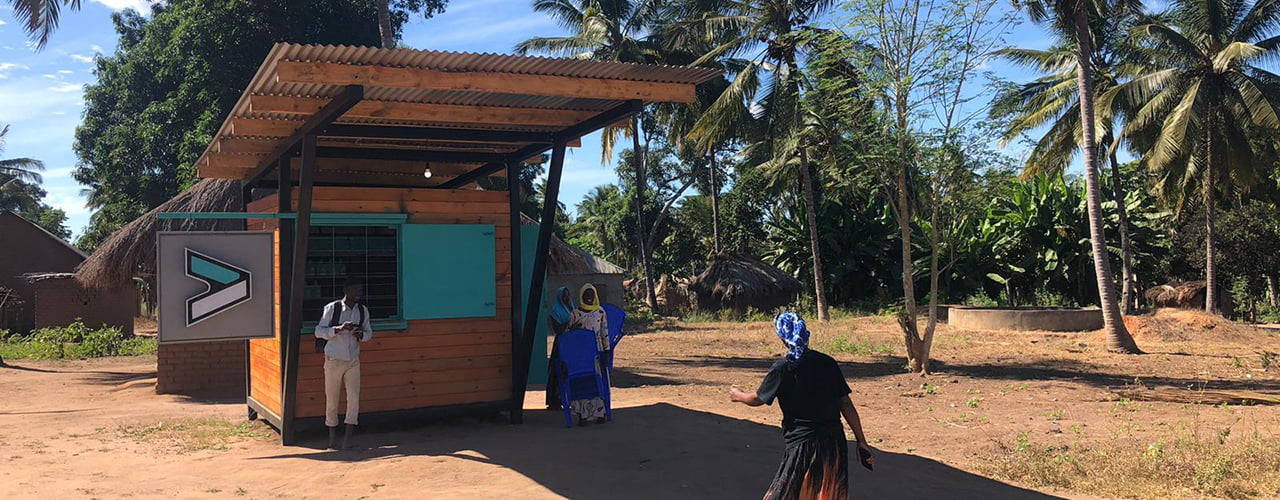
Putting Stars on the Map: Last-Mile Energy Access through Battery Rentals
Jaza Energy is revolutionising last-mile access in Tanzania through a network of solar energy hubs providing affordable battery rentals. Learn about their innovative business model in the latest EEP Africa case study.
Many rural communities in Africa lack access to electricity and even people living in villages with a mini-grid or national grid access often cannot afford the connection fees. One innovative solution for bringing electricity to bottom-of-the-pyramid customers in remote areas is through rechargeable battery packs.
Jaza Energy is developing a network of solar energy hubs across Tanzania that offer rental battery packs for lighting and other energy needs. Most batteries are used for household energy but 16% of Jaza customers use them to support small businesses and entrepreneurial activities. To date, Jaza has deployed 78 hubs across Tanzania providing power for 39,000 people.
In 2020, with EEP Africa financing, Jaza launched a new battery and refined its pricing model to specifically target low-income customers. As a result, the acquisition rate per hub rose from 10 to 140 new customers per month and Jaza battery swaps increased by over 440%.
``There is an assumption when it comes to energy access that ‘anything is better than nothing’ but this is not true. The product should solve the customer’s pain point. And the big lesson in this market is that quality of service matters because those with the lowest incomes have such high pressure on their purchasing decisions.” Jeff Schnurr, Jaza CEO
The Jaza business model is also unique in that all the energy hubs are operated exclusively by women. Jaza has so far created jobs for 150 women from rural communities, most of them under 25 years old with 97% reporting that this is their first job. All of these ‘Jaza Stars’ are provided with technical and financial training, as well as on-going peer support, which has created a strong sense of empowerment among the young women.
‘’Jaza is creating employment opportunities and skills for young women in rural Tanzania. Some of the Jaza Stars I met on my site visit had just finished high school. The job has equipped them with skills to manage the hub and their confidence has increased significantly after seeing what they have capacity to achieve. The job has also increased their income, enabling them to support their families and improve their livelihoods.’’ Faith Chege, EEP Africa Portfolio Coordinator.
Jaza sees tremendous opportunity for growth in the coming years. The EEP Africa grant allowed the company to build a solid foundation for its business and helped provide the capital base for a successful seed funding raise of USD 1.7 million in 2020. As battery technology continues to increase in quality and decrease in cost, Jaza will be able to offer customers affordable power for a wider range of appliances and services. Jaza hubs also provide an infrastructure network in last-mile communities that can enable other entrepreneurs to introduce new products and services in remote areas.
Read more about Jaza’s innovative and impactful business model in EEP Africa’s latest case study Putting Stars on the Map.


